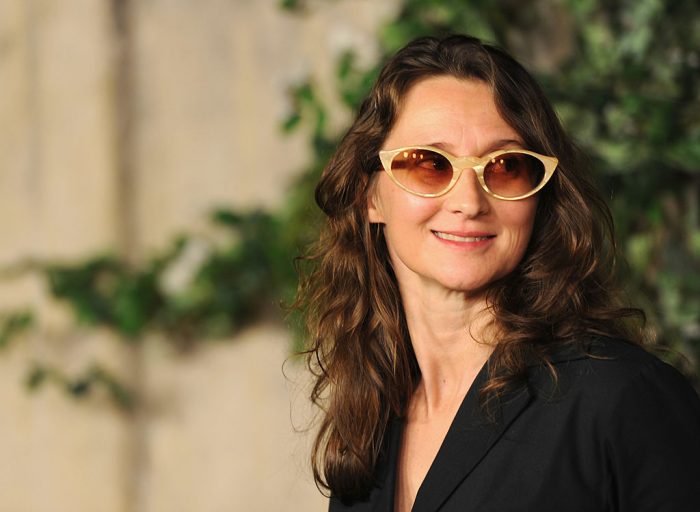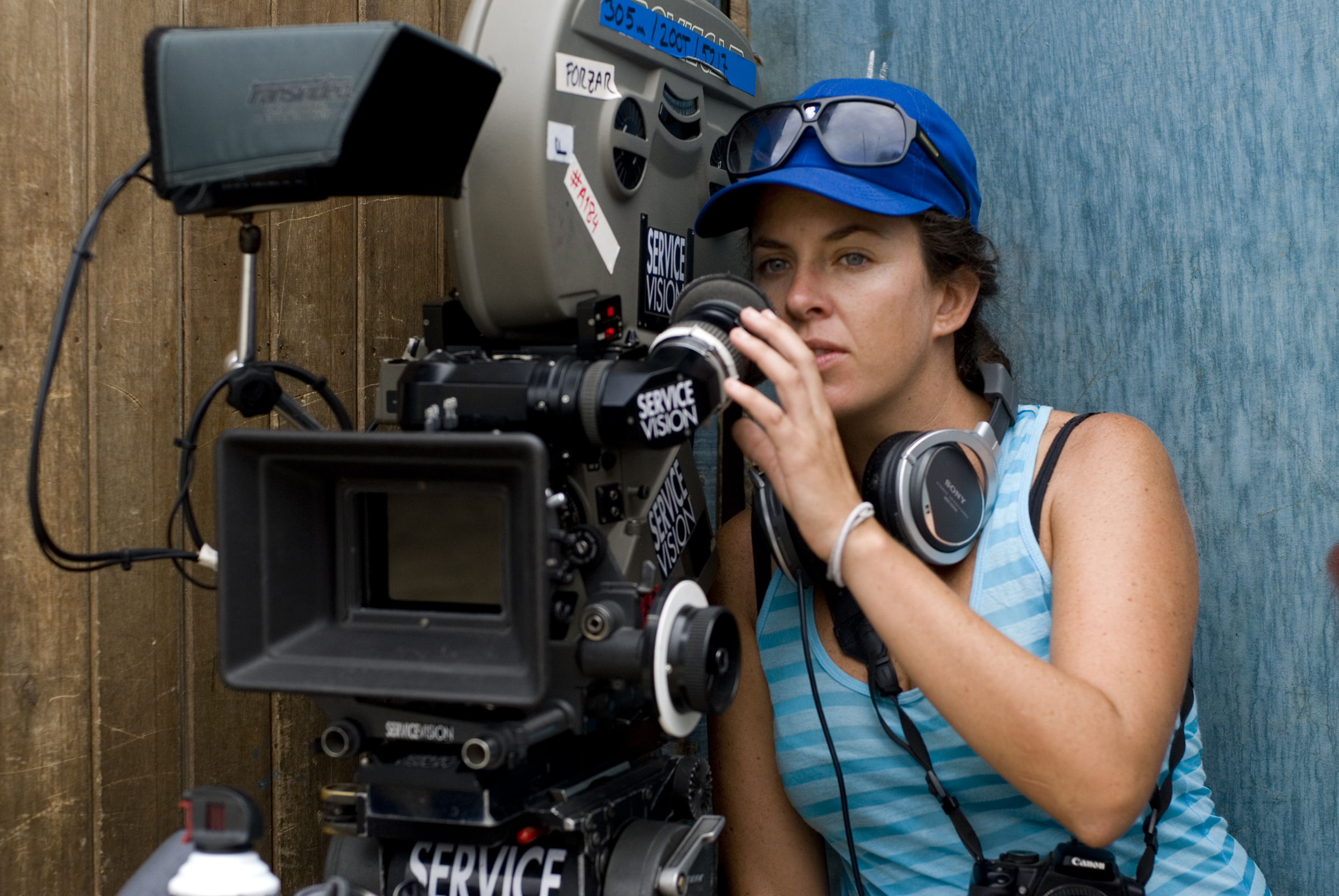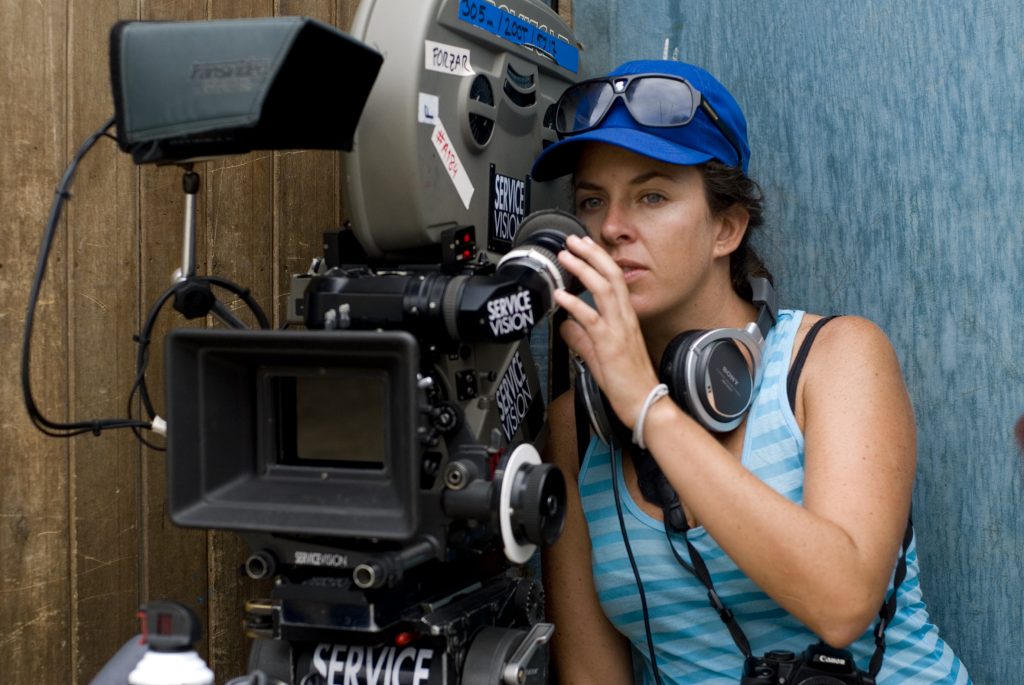Back in October 2015, Women in Film launched the #52FilmsByWomen campaign. The brief was simple: pledge and commit to watching (at least) one film directed by a female filmmaker a week. It sounds easy enough. That it would be a challenge at all spoke more to the systemic sexism that plagues filmmaking. In Hollywood alone, the problem has been such that a recent investigation by the Equal Employment Opportunity Commission found that major studios were discriminating against women when hiring.
This being Women’s History Month, we here at Remezcla wanted to take the time to shed a light on the many kickass Latinas who are breaking glass ceilings and changing the Latin American cinematic landscape in spite of the many obstacles they come upon. And while we could’ve easily made this a much much longer list, we went ahead and narrowed our list to 20 working female filmmakers that should be on your radar.
Hailing from all over the Americas and offering a wide range of genres and styles, these 20 directors have earned Oscar nominations, won accolades from the most esteemed film festivals from all over the world, worked with some of the best actors around, and told stories as diverse as you can imagine — from documentaries on the legacy of the armed conflict in El Salvador to bisexual teen rom-coms set in Chile, and everything in between. Consider this but a mere sampling of the strong pool of Latina filmmakers working today.
1
Natalia Almada, Mexico
Born in Mexico City, Almada moved to the U.S. where she first attended the College of Santa Fe and later studied Photography at the Rhode Island School of Design. Now, a dual citizen, the former photographer has made a career for herself as one of the most fascinating documentary filmmakers around. Her films Al otro lado (focused on an aspiring corrido composer), El general (on Mexican president Plutarco Elias Calles), and El velador (on a night watchman of a graveyard in Culiacán) established her as a keen attentive director able to capture larger socio-economic issues by telling small-scale stories. That’s precisely what she did in her first feature film, Todo lo demás. Funded in part by a MacArthur Fellowship (making her the first Latina filmmaker to earn that distinction), the Adriana Barraza-starring film follows the all too depressing life of a government worker with no family who loses the one thing she loves the most: her cat.
2
Aurora Guerrero, United States
A co-founder of Womyn Image Makers (WIM) along with Dalila Mendez, Maritza Alvarez and Claudia Mercado, this queer Chicana filmmaker built a reputation with a string of solid shorts before taking Sundance by storm with her 2012 feature film debut, Mosquita y Mari. The tender look at a complex friendship between two young girl friends earned Guerrero an Indie Spirit Award nomination for the John Cassavetes Award (open only to films budgeted at less than $500,000). In 2014, Guerrero announced work on her second feature, Los Valientes which will focus on a young undocumented gay Latino man living in the U.S. Her most recent work includes directing an episode of Ava DuVernay’s TV show Queen Sugar, which employed only female directors of color for its first season.
3
Cristina Ibarra, United States
This Chicana filmmaker has used her work to explore the U.S.-Mexico border. As she writes on her site, “the border is not only a subject – it is home.” Raised in El Paso, Texas and Ciudad Juárez, Mexico, she’s been keenly attuned to the border experience. She first came to notoriety with her experimental and memoir-like short film Dirty Laundry: A Homemade Telenovela. Her 2014 documentary feature Las Marthas followed two young women on their journey to their debut in 19th century-inspired gowns at an event hosted by the Society of Martha Washington. Her 2008 doc The Last Conquistador was about sculptor John Houser as he worked on the world’s tallest bronze equestrian statue for the city of El Paso, Texas.
4
Cecilia Aldarondo, United States
Aldarondo cut her teeth in academia. She’s an Assistant Professor of Film Studies at Skidmore where she teaches, among other things, courses on “Documentary Film” and “HIV/AIDS in Film and Video.” It’s no surprise that her first film, Memories of a Penitent Heart, would make great use of that background, mining her own family history (an uncle who died at the height of the AIDS crisis in New York after having left his native Puerto Rico) to create a photo album of a documentary.
5
Marialy Rivas, Chile
This Chilean writer-director won the World Cinema Screenwriting Award at the 2012 Sundance Film Festival for her film Joven y alocada, a look at a 17-year-old bisexual girl who writes a blog about the way her sexuality clashes with her Evangelical family. Before that, the School of Cinema of Chile dropout had written and directed several short films, including Smog which she worked on alongside Gloria director Sebastian Leilo. Her latest film Princesita focuses on a girl living in a cult whose leader thinks she’s the Chosen One.
6
Marcela Zamora, El Salvador
Zamora studied Journalism in Costa Rica and then graduated from the documentary program at EICTV, Cuba’s prestigious film in San Antonio de los Baños. Her socially conscious work has centered on gender and human rights. Her 2010 project María en tierra de nadie followed the journey of three Salvadoran women to the U.S. which exposed them to prostitution, slave trade, rape, kidnapping and even death, in an unwavering quest for a better life. Her 2015 documentary, El cuarto de los huesos, profiled a group of forensic anthropologists tasked with unearthing and trying to identify human remains from mass graves from the violence afflicting El Salvador. She followed that up with Los Ofendidos a more personal take on the toll violence takes on families, mining her own father’s history to talk about the the use of torture during the Salvadoran civil war.
7
Paz Fábrega, Costa Rica
With Viaje, Paz Fábrega became the very first Costa Rican director to ever have a film play at the Tribeca Film Festival (and Remezcla was there to capture it all). That black-and-white flick was a breezy take on a summer fling and a worthy follow-up to her first feature, Agua fria de mar which was also anchored on a couple whose lives change when they come upon a little girl who says she was stranded.
8
Anna Muylaert, Brazil
After studying filmmaking at the School of Communications and Arts at University of São Paulo, Muylaert became a film critic before starting her career as a television writer and producer. She didn’t direct her first feature film until she was 38 years old. But that late start hasn’t stopped her from becoming one of the most empathetic filmmakers around. Her two most recent films Que Horas Ela Volta? (The Second Mother), about a Brazilian maid, and Mãe Só Há Uma (Don’t Call Me Son) about a young genderqueer boy who learns he was kidnapped as a child, both played at the Berlin Festival where they won awards for the Paulistana director.
9
Tatiana Huezo, El Salvador
Despite being known now as one of the best documentarians working in Latin America today, Huezo began as a fiction filmmaker. She directed a sci-fi short called El Ombligo del Mundo as part of her thesis at the Centro de Capacitación Cinematográfica in Mexico City. But after directing Retrato de familia, a short doc on bigamy, she knew documentary filmmaking was what she wanted to pursue. And after getting her Masters in Creative Documentary, it’s clear she made the right call. In 2011’s El lugar más pequeño she looked at the armed conflict in El Salvador, where her family is from. But it was Tempestad, which won Huezo the Best Documentary Film award at this year’s Cinema Tropical Awards, which really cemented the Salvadoran-born, Mexican-raised director as one to watch. The dream-like account of two women’s accounts of the way the country’s violence against women has marked their lives was both aesthetically daring and politically urgent.
10
Deborah Esquenazi, United States
This Austin-based filmmaker won the Critic’s Choice Award for Best First Feature last year for her documentary film Southwest of Salem: The Story of the San Antonio Four. That project chronicled the legal battle surrounding the tale of wrongful conviction of four women in a child rape case in Texas. Her short film The Kellers also focused on another legal case in her home state concerning a former daycare operator wrongfully accused of child molestation during the national ‘Satanic sexual abuse’ panic of the late-80s and early-90s. Her next project is provocatively titled Certain Perversions.
11
Lucrecia Martel, Argentina

One of Latin America’s most esteemed and most awarded auteurs, Martel has screened her films in some of the world’s greatest film festivals. Her filmmaking often deals with social issues, holding up a mirror to Argentine society. Her first feature, La ciénaga, for example, screened at Berlin where it won the Alfred Bauer Award, given to a film that “opens new perspectives on cinematic art.” Focused on two women and their families in a small provincial town in Argentina, Martel’s film earned her excellent reviews, landing her a slot in the coveted New York Film Festival. Her sophomore feature, the religious and sexual drama The Holy Girl was executive produced by Pedro Almodóvar himself and, like her follow-up, the psychodrama The Headless Woman, screened at the Cannes Film Festival. Her upcoming film Zama is said to be in post-production and is based on a 1956 novel by Antonio di Benedett.
12
Yanillys Perez, Dominican Republic
Half-Venezuelan and half-Dominican Perez started her career in front of the camera — she had a small role in Olivier Assayas’s miniseries Carlos which starred Edgar Ramirez. As she told Remezcla after screening her first feature Jeffrey, she began writing as a way to create projects to star in. But once she got a taste of film directing, she fell in love. So after directing a number of short films she dove into working on her first feature film which ended up being a documentary about a young kid in Santo Domingo who dreams of becoming a reggaetón star.
13
Marcela Said, Chile
After earning a degree in aesthetics from the Pontificia Universidad Católica de Chile, Said headed to France where she studied film at the famed Paris-Sorbonne University. Her best-known film, the documentary I Love Pinochet looked at the supporters of Chile’s infamous dictator, while Opus Dei, una cruzada silenciosa honed in on the increasing influence of the Opus Dei in Chile. El verano de los peces voladores, Said’s first foray into fiction filmmaking premiered in the Directors’ Fortnight at the 2013 Cannes Film Festival. Much like her earlier films, El verano tackled complex social issues in her home country, this time looking at the Mapuche conflict with the white landowners of European descent in Chile.
14
Mariana Chenillo, Mexico
Chenillo holds the distinction of being the first female filmmaker to have directed a Best Picture-winning film at Mexico’s Ariel awards. She accomplished that feat with her bitingly funny Cinco días sin Nora, a comedy about the five days following Nora’s suicide which she’d planned to bring her family back together. And while she’s tried her hand at TV (directing episodes of Soy tu fan and Netflix’s Club de Cuervos) she followed up her critically acclaimed film with Paraíso a look at what happens when a couple moves from the middle-class suburban area of Naucalpan to Mexico City proper, which is bustling and stressful.
15
Betzabé García, Mexico
García’s first documentary feature, Los reyes del pueblo que no existe (Kings of Nowhere) made this young Mexican filmmaker one to watch. Her meditative take on the ravaged Mexican countryside in the wake of the violence sweeping rural areas was a thrilling calling card. As the Mazatlán-born director told Remezcla, that years-in-the-making project (which won her the SX Global Audience Award at SXSW in 2015) was the culmination of the curiosity she felt about what she says was a “post-apocalyptic town.” She followed it up with a short called Unsilenced made up of repurposed material from her Kings shoot which was showcased in the New York Times as part of the Op-Docs initiative.
16
Maite Alberdi, Chile
A graduate of the Universidad Católica de Chile, Alberdi is a rising star whose documentaries have a knack for offering intimate portrait of her subjects. That’s most obvious in La once where she profiled a group of old ladies that have been friends since high school and meet every month for onces, and Los niños, about a group of middle-aged Chileans with Down’s Syndrome. She’s already hard at work on her next film, another doc titled The Mole Agent that will borrow from film noir and fiction thrillers to tell a story about private investigators and intelligence operatives.
17
Laura Amelia Guzmán, Dominican Republic
Raised in a family of filmmakers—a rarity in the Caribbean island—Guzmán has emerged as a vibrant voice in the ever-growing Dominican film industry. Along with her husband, she’s co-directed a trio of films that speak to stories of characters often missing from Latin American cinema. In Cochochi they focused on two indigenous brothers from the northwest of Mexico with different opinions as to what to do after finishing their studies at a boarding school. In Jean Gentil on a Haitian man desperately looking for work in Santo Domingo, and in their most recent project, Dólares de arena, they adapted a French novel about a same-sex relationship between an older European woman and a young Dominican girl.
18
Julia Solomonoff, Argentina
You may not know this about Solomonoff but she was first Assistant Director on the Gael García Bernal starrer Los diarios de motocicleta. It’s but one of the many credits she’s accrued over her already quite impressive career. In addition to a string of short films and even a TV docuseries (Parana, biografia de un rio, on the history of the Paraná river), she has two feature films under her belt: the separated-sisters now reunited flick Hermanas and the gender defying coming of age film El último verano de la Boyita. Her next film, Nadie nos mira which focuses on self-imposed exile is set to premiere at the 2017 Tribeca Film Festival.
19
Patricia Riggen, Mexico
Born in Guadalajara, this Mexican filmmaker has never shied away from discussing how unlikely she thought making a name for herself as a director would be. Thankfully, her hard work has paid off and we are all the better for it. She first made waves with her film La misma luna which starred Kate del Castillo as an undocumented woman working in the U.S. which she’s followed up with such high profile and uplifting projects as the Antonio Banderas-led Chilean miners drama The 33 and the Christian contemporary story Miracles from Heaven whose cast included Jennifer Garner, Queen Latifah and Eugenio Derbez.
20
Claudia Llosa, Peru
The last Latina filmmaker to have been nominated for a Best Foreign Language Film Award at the Oscars, Llosa was born in Lima but moved to Madrid where she studied at the Escuela TAI. While working in advertising she began developing her first film Madeinusa which is set in the fictional indigenous village of Manayaycuna in the Peruvian Andes. But it was her second film which established her as a critics’ favorite. La teta asustada which used magical realism to delve into the recent history in Peru of violence against women won the Golden Bear at the Berlin Festival and earned the Latin American country its very first Oscar nomination. Her ambitious follow-up was Aloft about a woman seeking help from a faith healer for her son. which starred Jennifer Connelly and Cillian Murphy.




